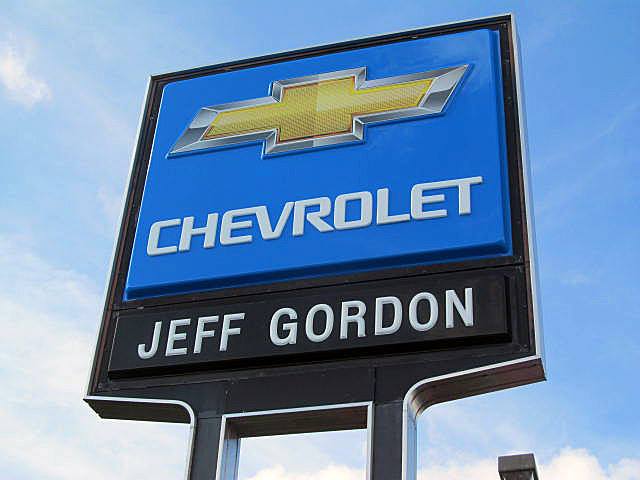FOX NASCAR Analysts Darrell Waltrip, Jeff Gordon and Larry McReynolds & Play-by-Play Announcer Mike Joy Discuss Enhanced Competition Format
FOX NASCAR Analysts Darrell Waltrip, Jeff Gordon and Larry McReynolds & Play-by-Play Announcer Mike Joy Discuss Enhanced Competition Format 
On Monday, NASCAR, in conjunction with industry stakeholders, announced an enhanced competition format for its three national series beginning with the 2017 season opener at Daytona International Speedway. Expected to produce more dramatic moments in each race from the green flag to the checkered flag, the new format offers playoff-point incentives that emphasize performance across every lap.
Below, the FOX NASCAR on-air team of play-by-play announcer Mike Joy, four-time NASCAR premier series champion Jeff Gordon, Hall of Famer and three-time series champ Darrell Waltrip and former crew chief Larry McReynolds offers reaction to the new format. The aforementioned group will call the DAYTONA 500, live on FOX, on Sunday, Feb. 26 (2:00 PM ET).
On initial reaction to the new format:
“I embrace the new format – not because FOX Sports, NASCAR or any driver asked me to. I truly like it. It may seem a little complicated on the surface, but the winner still takes the checkered flag, goes to Victory Lane and hoists the trophy. The premise behind the competition will not change. When the NBA added the three-point line, the basketball court was still the same size and the goal the same height. But the addition of the three-point line did change the game of basketball. When the NFL moved the location for the kicking of the extra point, the field remained at 100 yards and a field goal still paid three points, but the extra-point line movement was a bit of a game changer. I expect this to be a game changer because there is more at stake now. Playoff points are available throughout the race, and every move a driver makes can count. That carrot is dangling in front of a driver’s face from the green to the checkered flag all season long.”
--Larry McReynolds, FOX NASCAR analyst
“This new format is another step toward bringing racing in line with other professional sports. Football is played in quarters. Baseball is played in innings and hockey in periods. Fans of other sports are more familiar with this type of format. The idea of trying to get the viewer in front of a TV set for 500 miles of straight competition has proven difficult in this century. People are consuming sports differently than ever before, and every sport is discussing evolving to suit the target audience. This race-stage format provides a better alternative than shortening races, because fans will still get their money’s worth with just as much competition as previously.”
--Mike Joy, FOX NASCAR play-by-play announcer
“This is definitely going to enhance the experience of the competitors as well as the viewers and fans at home. Just being a part of this in that room, collaborating and hearing the different views and hearing everyone’s input from team principals, track operators and owners, drivers, NASCAR, networks, was a pretty amazing experience. What came out of it was this balance between what fans are asking for, what we can do to make the races even more exciting and make more moments, but also balancing out competition and what the competitors are going to go through. I think we came out with something really incredible. I had a new perspective last year being in the booth, so I’m really excited about getting back in the booth and calling the races with the stages.”
--Jeff Gordon, FOX NASCAR analyst (who played a role in helping develop the new format)
“It will be fun to watch the teams get their feet wet with this new format and figure out how to capitalize on it before the next guy does. Great minds are breaking it down right now, as they do anytime something new is introduced. What exactly that will look like, I doubt anyone knows yet. The new format will take a little adjustment for all of us – drivers, media and the crews. We’ve never done anything like this before, but different oftentimes turns out to be pretty exciting. I’m really looking forward to getting down to Daytona, putting this format into action, seeing what we have and who figures it out first.”
--Darrell Waltrip, FOX NASCAR analyst
On how FOX Sports’ approach to producing and calling a race could change with the now-natural breaks resulting from the new format’s different stages:
“FOX Sports’ approach to producing and calling a race could definitely change because stage breaks will help us spread out our storytelling, providing an opportunity to bring viewers up-to-speed on the race without looking away from the ongoing competition on the track. The best part of the breaks is they could enable us to reduce green-flag TV commercials by as much as 20-percent.”
--Mike Joy, FOX NASCAR play-by-play announcer (broadcasting his 42nd Daytona 500 this year)
“I like the idea of stage breaks. I’ve always been somewhat in favor of a ‘halftime break,’ for lack of a better term, like football and basketball have. No other professional sport runs the entire event without some type of interruption or break, so this puts NASCAR more in line with other pro sports.”
--Darrell Waltrip, FOX NASCAR analyst
On possible strategy adjustments teams will have to make under the new format:
“Running races in stages will call for adjustments in pit strategy. Under a much older points system, Dave Marcis had a habit of running at least one really long stretch on a tank of fuel through green-flag pit stops to be credited with leading a lap worth five points. As a result, Dave finished higher in points at the end of the year. Running a race in stages sets the table for those kinds of strategies. It will be fun to get our arms around how teams deal with changes in their race day preparation and strategy. This is like moving the kickoff line back in football. Making that change required adjustments by the teams in their procedure. This is a tweak -- not a wholesale change. Our hope is this increases the viewers’ enjoyment of the race and possibly how much of the race the average viewer watches.”
--Mike Joy, FOX NASCAR play-by-play announcer
On an increased sense of urgency and emphasis on aggressive racing the new format is expected to produce:
“I don’t think drivers weren’t racing hard in years past. That assumption is inaccurate and unfair. However, when you win the Daytona 500, for example, and have 25 regular-season races remaining before the Chase, a team and driver change their agenda to focus solely on the 10-race playoffs awaiting them. They aren’t racing any less intensely or giving less than 100-percent, but their focus is in a different place. With the new format, their agendas cannot change after a win because every point from every race counts once the playoffs start.”
--Larry McReynolds, FOX NASCAR analyst
On implementation of the race format enhancements across all three national series:
“I’m encouraged NASCAR is implementing this format for all three series because the more unified those three are, the better for the fans. In the Atlanta Falcons/Green Bay Packers game, Julio Jones caught a pass, and I had to quickly think, ‘Is it one foot or two feet in?’ It’s a little confusing because the rules are different between the NFL and college. So, the more we can follow the same system for all three national series, the better for the education and enjoyment of the fans.”
--Larry McReynolds, FOX NASCAR analyst







